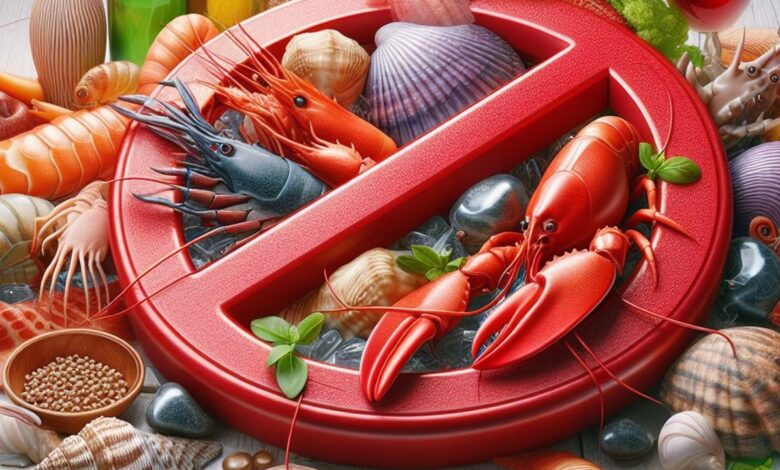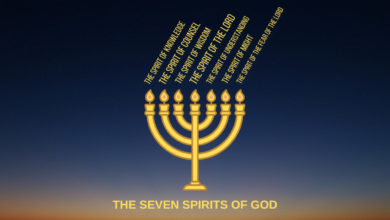Are the dietary laws of the Bible still valid? Which animals are considered unclean?

Many Christians wonder: Does Leviticus 11 still apply? The sad truth is that nowadays many Churches teach that the dietary laws are not valid anymore and therefore, they can eat anything they want. However, there is no clear statement in the Bible that proves the abolition of the dietary laws. Most of the time, things are taken out of context or freely interpreted. It is also often argued that Jesus fulfilled the law, and therefore, there is no need to adhere to any of God’s commandments. The fact that the law and, consequently, the dietary laws in the Bible are still valid is evident simply because God has told us that the commandments are eternal. Moreover, Jesus taught nothing to the contrary.
The grass withereth, the flower fadeth: but the word of our God shall stand forever. (Isaiah 40:8)
Think not that I am come to destroy the law, or the prophets: I am not come to destroy, but to fulfill. For verily I say unto you, Till heaven and earth pass, one jot or one tittle shall in no wise pass from the law, till all be fulfilled. Whosoever therefore shall break one of these least commandments, and shall teach men so, he shall be called the least in the kingdom of heaven: but whosoever shall do and teach them, the same shall be called great in the kingdom of heaven. For I say unto you, That except your righteousness shall exceed the righteousness of the scribes and Pharisees, ye shall in no case enter into the kingdom of heaven. (Matthew 5:17-20)
More on this can be found here: Jesus did not abolish the law of Moses
In this article, you will find both a list of clean and unclean animals according to the Bible, and an explanation of why Leviticus 11 still applies today and the dietary laws are still valid.
What are the dietary laws in the Bible? Which animals are considered unclean according to the Bible?
The dietary laws of the Bible are found in the Old Testament in Leviticus 11. There, it is detailed which animals are clean and which are unclean. God commanded the people to eat only clean animals.
And the Lord spake unto Moses and to Aaron, saying unto them:
Speak unto the children of Israel, saying:
These are the beasts which ye shall eat among all the beasts that are on the earth. Whatsoever parteth the hoof, and is clovenfooted, and cheweth the cud, among the beasts, that shall ye eat. Nevertheless these shall ye not eat of them that chew the cud, or of them that divide the hoof: as the camel, because he cheweth the cud, but divideth not the hoof; he is unclean unto you. And the coney, because he cheweth the cud, but divideth not the hoof; he is unclean unto you. And the hare, because he cheweth the cud, but divideth not the hoof; he is unclean unto you. And the swine, though he divide the hoof, and be clovenfooted, yet he cheweth not the cud; he is unclean to you. Of their flesh shall ye not eat, and their carcass shall ye not touch; they are unclean to you.
These shall ye eat of all that are in the waters: whatsoever hath fins and scales in the waters, in the seas, and in the rivers, them shall ye eat. And all that have not fins and scales in the seas, and in the rivers, of all that move in the waters, and of any living thing which is in the waters, they shall be an abomination unto you: They shall be even an abomination unto you; ye shall not eat of their flesh, but ye shall have their carcasses in abomination. Whatsoever hath no fins nor scales in the waters, that shall be an abomination unto you.
Of all clean birds ye shall eat. But these are they of which ye shall not eat: the eagle, and the ossifrage, and the ospray, And the vulture, and the kite after his kind; Every raven after his kind; And the owl, and the night hawk, and the cuckow, and the hawk after his kind, The little owl, and the great owl, and the swan, And the pelican, and the gier eagle, and the cormorant, And the stork, and the heron after her kind, and the lapwing, and the bat.
All fowls that creep, going upon all four, shall be an abomination unto you. Yet these may ye eat of every flying creeping thing that goeth upon all four, which have legs above their feet, to leap withal upon the earth; Even these of them ye may eat; the locust after his kind, and the bald locust after his kind, and the beetle after his kind, and the grasshopper after his kind. But all other flying creeping things, which have four feet, shall be an abomination unto you. And for these ye shall be unclean: whosoever toucheth the carcass of them shall be unclean until the even. And whosoever beareth ought of the carcass of them shall wash his clothes, and be unclean until the even. The carcasses of every beast which divideth the hoof, and is not clovenfooted, nor cheweth the cud, are unclean unto you: every one that toucheth them shall be unclean. And whatsoever goeth upon his paws, among all manner of beasts that go on all four, those are unclean unto you: whoso toucheth their carcass shall be unclean until the even. And he that beareth the carcass of them shall wash his clothes, and be unclean until the even; they are unclean unto you.
These also shall be unclean unto you among the creeping things that creep upon the earth; the weasel, and the mouse, and the tortoise after his kind, And the ferret, and the chameleon, and the lizard, and the snail, and the mole. These are unclean to you among all that creep: whosoever doth touch them, when they be dead, shall be unclean until the even. And upon whatsoever any of them, when they are dead, doth fall, it shall be unclean; whether it be any vessel of wood, or raiment, or skin, or sack, whatsoever vessel it be, wherein any work is done, it must be put into water, and it shall be unclean until the even; so it shall be cleansed. And every earthen vessel, whereinto any of them falleth, whatsoever is in it shall be unclean; and ye shall break it. Of all meat which may be eaten, that on which such water cometh shall be unclean: and all drink that may be drunk in every such vessel shall be unclean. And every thing whereupon any part of their carcass falleth shall be unclean; whether it be oven, or ranges for pots, they shall be broken down: for they are unclean, and shall be unclean unto you. Nevertheless a fountain or pit, wherein there is plenty of water, shall be clean: but that which toucheth their carcass shall be unclean. And if any part of their carcass fall upon any sowing seed which is to be sown, it shall be clean. But if any water be put upon the seed, and any part of their carcass fall thereon, it shall be unclean unto you.
And if any beast, of which ye may eat, die; he that toucheth the carcass thereof shall be unclean until the even. And he that eateth of the carcass of it shall wash his clothes, and be unclean until the even: he also that beareth the carcass of it shall wash his clothes, and be unclean until the even.
And every creeping thing that creepeth upon the earth shall be an abomination; it shall not be eaten. Whatsoever goeth upon the belly, and whatsoever goeth upon all four, or whatsoever hath more feet among all creeping things that creep upon the earth, them ye shall not eat; for they are an abomination. Ye shall not make yourselves abominable with any creeping thing that creepeth, neither shall ye make yourselves unclean with them, that ye should be defiled thereby.
For I am the Lord your God: ye shall therefore sanctify yourselves, and ye shall be holy; for I am holy: neither shall ye defile yourselves with any manner of creeping thing that creepeth upon the earth. For I am the Lord that bringeth you up out of the land of Egypt, to be your God: ye shall therefore be holy, for I am holy. This is the law of the beasts, and of the fowl, and of every living creature that moveth in the waters, and of every creature that creepeth upon the earth: To make a difference between the unclean and the clean, and between the beast that may be eaten and the beast that may not be eaten.
(Leviticus 11:1-47)
As is apparent from the verses above, only animals that have both a cloven hoof and chew the cud are considered clean. Furthermore, fish must have fins and scales to be considered clean. Regarding birds, clean birds are listed, and all other flying or creeping things are considered unclean. Creeping animals are unclean, with a few exceptions like locusts, bald locusts, beetles, and grasshoppers.
List of clean and unclean animals according to Leviticus 11
Please note that this list is not complete. Only the most common animals consumed by humans are listed here. Leviticus 11 mentions additional animals and even insects. For all other animals, you have to differentiate based on the specified characteristics to determine which are considered clean and which are considered unclean according to the Bible.
Unclean animals, which according to the Bible should not be eaten
Since Leviticus 11 still applies, these animals are unclean and therefore should not be consumed:
Unclean land animals: Pig, Hare, Horse, Predators (such as Cats, Dogs, etc.)
Unclean water animals: Seafood and Shellfish (such as Crabs, Lobsters, Shrimps, Prawns, and Mussels), Mollusks (such as Jellyfish, Octopus, and Squid), Fish without scales (such as Sharks, Rays, Catfish, Eel, Pangasius)
Unclean birds: Waterfowl (such as Duck, Goose, Swan), Birds of prey (such as Eagle, Falcon, Buzzard, etc.)
Clean animals, which according to the Bible, can be eaten
These animals, on the other hand, are clean and can be consumed:
Clean land animals: Cattle/Cow, Sheep, Goat, Deer
Clean water animals: All fish with scales and fins (such as Salmon, Cod, Herring, Tuna, etc.)
Clean birds: Poultry, Chickens, Turkey
Peter’s vision is not about the abolition of dietary laws
Nowhere in the Bible can one find a passage explicitly stating that the dietary laws of the Old Testament have been lifted. Many Christians refer to this passage in the Bible, which supposedly suggests that God declared all animals clean. However, this passage has an entirely different meaning and does not suggest in any way that the dietary laws of the Old Testament are done away with.
On the next day, as they were on their journey and approaching the city, Peter went up on the housetop about the sixth hour to pray. And he became hungry and wanted something to eat, but while they were preparing it, he fell into a trance. He saw the heavens opened and something like a great sheet descending, being let down by its four corners upon the earth. In it were all kinds of animals and reptiles and birds of the air. And there came a voice to him: “Rise, Peter; kill and eat.” But Peter said, “By no means, Lord; for I have never eaten anything that is common or unclean.” And the voice came to him again a second time, “What God has made clean, do not call common.” This happened three times, and the thing was taken up at once to heaven. (Acts 10:9-16)
In no way can it be inferred from this passage that God declared all animals clean, at most only the animals that were actually in the sheet at that time. However, one cannot simply conclude from this verse that God has completely lifted the dietary laws, and every animal can be eaten without hesitation. On the contrary, this verse actually indicates that the animals in this sheet are still unclean, and God would have had to cleanse them for Peter to be allowed to eat them. Yet, they were taken back to heaven.
Interestingly, at this point, Peter even affirms that he had never eaten anything unclean up to that time and, therefore, had observed the dietary laws. Consequently, we can assume that Jesus and his disciples never ate anything unclean.
In reality, this vision has an entirely different meaning and has nothing to do with the dietary laws, as the Bible tells us. Immediately after this revelation, Peter went to the house of a non-Jew. At that time, it was forbidden for Jews to enter the houses of non-Jews. However, this was not a law of God but a law made by humans. The significance of the vision was that God did not want to consider the Gentiles as unclean, despised beings but intended to save them. Hence, it is stated:
What God hath cleansed, that call not thou common. (Acts 10:15)
And as he talked with him, he went in and found many that were come together. And he said unto them, “Ye know how that it is an unlawful thing for a man that is a Jew to keep company, or come unto one of another nation; but God hath showed me that I should not call any man common or unclean. Therefore came I unto you without gainsaying, as soon as I was sent for.” (Acts 10:27-29
There cometh a woman of Samaria to draw water. Jesus saith unto her, “Give me to drink.“(For his disciples were gone away unto the city to buy meat.) Then saith the woman of Samaria unto him, “How is it that thou, being a Jew, askest drink of me, which am a woman of Samaria?” (For the Jews have no dealings with the Samaritans.) (John 4:7-9)
And other sheep I have, which are not of this fold: them also I must bring, and they shall hear my voice, and there shall be one fold, and one shepherd. (John 10:16)
Jesus never declared all food clean
As mentioned above, Jesus and his disciples were Jews, thus adhering to all the commandments of the Old Testament, including the dietary laws. None of them would have thought of consuming unclean animals, as their consumption is strictly prohibited in the Torah.
In many instances, it is crucial not to take the text out of context and manipulate it for personal purposes. In this case, some translations have gone so far as to add their own sentence to the Word of God, justifying disobedience to God’s dietary laws. See for yourselves:
“Do you not see that whatever goes into a person from outside cannot defile him, since it enters not his heart but his stomach, and is expelled?” (Thus, he declared all foods clean.) And he said, “What comes out of a person is what defiles him.” (Mark 7:18-20, English Standard Version)
However, the actual wording does not include this sentence because it does not fit the context at all:
“Do you not perceive that whatever goes into a person from outside cannot defile him, since it enters not his heart but his stomach, and is expelled?” [NOTHING ADDED] And he said, “What comes out of a person is what defiles him.” (Mark 7:18-20)
In fact, the dietary laws are not even the topic of this passage but rather eating with unwashed hands. However, the commandment that you should wash your hands before eating was solely a human command and not ordained by God, which is why the disciples did not adhere to it:
And the Pharisees and the scribes asked him, “Why do your disciples not walk according to the tradition of the elders, but eat with defiled hands?” He said to them, “Well did Isaiah prophesy of you hypocrites, as it is written, ‘This people honors me with their lips, but their heart is far from me; in vain do they worship me, teaching as doctrines the commandments of men.’ You leave the commandment of God and hold to the tradition of men.” (Mark 7:5-9)
Paul also did not abolish the dietary laws
Furthermore, verses from Paul are often used to declare the dietary laws of the Bible invalid. However, here it becomes crucial to understand the background of Paul’s letters. In the letters to the Colossians and Acts, the focus is not on abolishing the dietary laws but on meat sacrificed to idols!
In the ancient Roman Empire, it was common to sacrifice meat to false gods or bless them in their name and then sell them in the market. As a result, people often did not know exactly where the meat came from or whether it was ceremonially clean. Many Christians, therefore, chose to become vegetarians entirely to be sure, while others continued to eat meat if they did not know the source. This issue is precisely what is addressed, for example, in Romans 14.
One person believes he may eat anything while the weak person eats only vegetables. Let not the one who eats despise the one who abstains, and let not the one who abstains pass judgment on the one who eats, for God has welcomed him. Who are you to pass judgment on the servant of another? It is before his own master that he stands or falls. And he will be upheld, for the Lord is able to make him stand. (Romans 14:2-4)
This is also the reason Paul instructed that no one should judge another regarding food and drink. This was not about the dietary laws in Leviticus 11 but about the uncertainty of the food source:
For if your brother is grieved by what you eat, you are no longer walking in love. By what you eat, do not destroy the one for whom Christ died. So do not let what you regard as good be spoken of as evil. For the kingdom of God is not a matter of eating and drinking but of righteousness and peace and joy in the Holy Spirit. Whoever thus serves Christ is acceptable to God and approved by men. (Romans 14:15-18)
But food does not bring us near to God; we are no worse if we do not eat and no better if we do. (1 Corinthians 8:8)
However, he added that if someone were to eat meat from the market with a guilty conscience, it would be a sin for them. But for the one who considers it “common,” it is clean.
So let us pursue what makes for peace and for mutual upbuilding. Do not, for the sake of food, destroy the work of God. Everything is indeed clean, but it is wrong for anyone to make another stumble by what he eats. It is good not to eat meat or drink wine or do anything that causes your brother to stumble. The faith that you have, keep between yourself and God. Blessed is the one who has no reason to pass judgment on himself for what he approves. But whoever has doubts is condemned if he eats, because the eating is not from faith. For whatever does not proceed from faith is sin. (Romans 14:19-23)
This distinction becomes even clearer when looking at the Greek original text. Two different words are used for “generally unclean foods according to Leviticus 11” (katharos) and “generally clean foods that have been ceremonially defiled” (koinos). This difference becomes especially evident in Acts 10:14 in the original text, where Peter distinguishes between the two.
You can check it here: https://bibeltext.com/interlinear/acts/10-14.htm
Of course, no one is judged for unintentionally eating something unclean. Faith in God saves, not what you consume. However, confessing God as the Father also means adhering to His commandments.
Jesus said to him, “You shall love the Lord your God with all your heart and with all your soul and with all your mind.” This is the great and first commandment. (Matthew 22:37-38)
For this is the love of God, that we keep his commandments. And his commandments are not burdensome. (1 John 5:3)
People are not defiled by food but by disobedience to God’s commandments.
Conclusion: Leviticus 11 still applies today and therefore the Dietary Laws are still valid
As we can see, the dietary laws of the Old Testament have not been abolished. The truth is that the consumption of unclean animals (katharos) was never even discussed in the New Testament, as it was clear to all believers that Leviticus 11 still applies.
Like all of God’s commandments, the dietary laws serve our own well-being and protection. God has given us His commandments out of love, so that we may prosper. Those who willingly disregard the dietary laws not only jeopardize their relationship with God but potentially their health as well. The Bible states that we will prosper if we observe God’s commandments:
Ye shall observe to do therefore as the LORD your God hath commanded you: ye shall not turn aside to the right hand or to the left. Ye shall walk in all the ways which the LORD your God hath commanded you, that ye may live, and that it may be well with you, and that ye may prolong your days in the land which ye shall possess. (Deuteronomy 5:32-33)





Greetings I noticed duck is listed among the unclean in this article but it is not there in the bible verses?
You are correct. The duck is not explicitly listed there, just as many Animals on earth aren’t. But the duck shares a lot if not nearly all similarities with the other Waterbirds that hunt fish. The Swan is even considered a species of Duck birds according to definition. The duck is closely related to the goose and the swan. And apart from that it is a predatory bird, it doesn’t have a crop, the toes are webbed and the fat is not separable from the rest of the meat. And since many people eat duck, I wanted to make sure that it is included in the list.
Great article! And so necessary. “Christianity”, the fake version created by Rome, set out to distance itself from Jews and Judaism and to create it as a common enemy, in order to unite true gentile followers of Messiah with their Roman ideal of violence and domination. That is why Rome BANNED the Bible for hundreds of years! Rome set out, and succeeded, in creating-what I believe-was “the great delusion”. People weren’t allowed to own, read, or translate the Bible, and Rome made itself into, literally-its in their writings-“God on earth”. This is where the great schism developed and why we have so many denominations, which are all just some form of spin-off of Rome. The early Christians met in each other’s homes! And Paul said, “when you come together, EACH one has a word, a song, a hymn, a teaching”. In other words, EVERYONE participated and shared in the learning process, and we were to discern, through the Holy Spirit-what was from God and what was not. This trains a person to rely on the teaching of the Spirit, not man’s teachings, and it trains everyone to diligently study and contribute. What Rome created was this hierarchy, starting with a “pope”, that would dictate to YOU what you were supposed to believe and do and how you were to live, no questions asked. All the denominations, even if they are “Protestant”, follow the same model. One pastor or priest is the arbiter of the Word-HE tells you what it says and means, and as you sit obediently in your pew, you are to keep your mouth shut, listen and obey, and don’t you DARE question the pastor/preacher! “He’s a holy man-he went to seminary school and has degrees!” Didn’t Christ allow anyone to ask him questions, and didn’t he move among the people and make himself available? That’s why we abandoned the “Old Testament”, to our own peril, thanks to Rome and our own Western stuborness and self-righteousness. Thanks again for such valuable information-God bless!
ผมเลี้ยงเป็ดเนื้อ สายพันธุ์บาบารี่เพื่อขายเนื้อและก็เลี้ยงห่าน และมีบ้างที่เอามากิน.
เลี้ยงตั้งแต่ออกจากไข่จนถึงจับขาย
เลี้ยงด้วยอาหารเม็ดสำเร็จรูป
แบบนี้เป็ดและห่านของผมก็ไม่ได้ล่าอะไรมากินเอง
จะผิดหรือไม่
I raise Barbary ducks for meat and sell them as well as geese, and sometimes I eat them.
I raise them from the time they hatch until they’re ready to sell.
I feed them a ready-made pellet diet.
My ducks and geese don’t hunt anything for their own consumption.
Is this wrong?